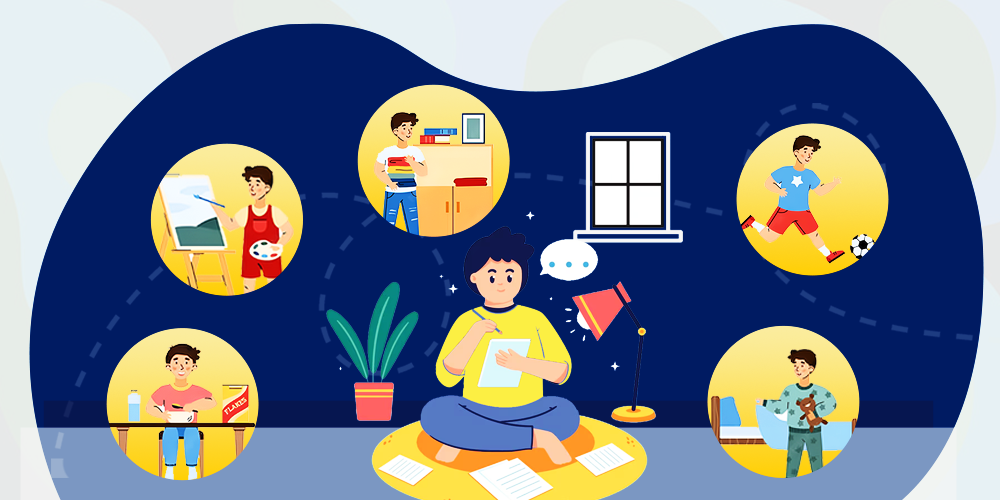
Success in academics and personal life does not happen by accident; it takes constant effort and hard work.
It’s not a one-day effort; rather, it is the result of a strong foundation built on good habits that lead to a productive life and better lifestyle.
In students at a very young age they develop the ability to learn from their surroundings which later becomes their habit.
These habits enhance a students academic performance and also builds character, resilience and the sense of responsibility that benefits them in all stages of their life.
Habits are powerful tools that can significantly impact a student’s performance, either positively or negatively.
Good habits provide structure, consistency, and direction to students, making them more efficient. On the other hand, even one bad habit can undermine all their academic and personal achievements.
It is very important for students to develop positive habits as it helps in improving their physical well being and emotional resilience with improved concentration.
As the famous saying goes, “We first make our habits, and then our habits make us.”
For students building strong habits such as time management and organisation skills and maintaining discipline allows them to achieve their academic goals without feeling overwhelmed with the situation and it makes them believe in a well-rounded lifestyle that incorporates all the aspects of life including learning, health, mindfulness ultimately boosting their confidence to face challenges more efficiently.
Furthermore, in this article, we will discuss key habits that students should cultivate in themselves for long term success and habits that help students in their lifelong learning journey and in adopting a healthy lifestyle.
Some of the most important habits that student should develop are :
Contents
1. Time Management

Time management is an essential habit for students to master, as it helps them use their time effectively and incorporate their everyday schedule in a way that they learn from every second of their life making sure that the 24 hours from the day is fully utilised.
People who use their time wisely are often the most successful people and time management allows students to prioritize tasks as per their importance and avoid any last minute stress that can be caused because of assignments and other deadlines.
This also helps students in taking out time for their extra curricular and co curricular activities with the help of which they can also pursue their hobbies alongside their academics.
Here’s a details blog on how students can actually improve their time management skills: How Can Students Improve Time Management Skills
Strategies for Effective Time Management
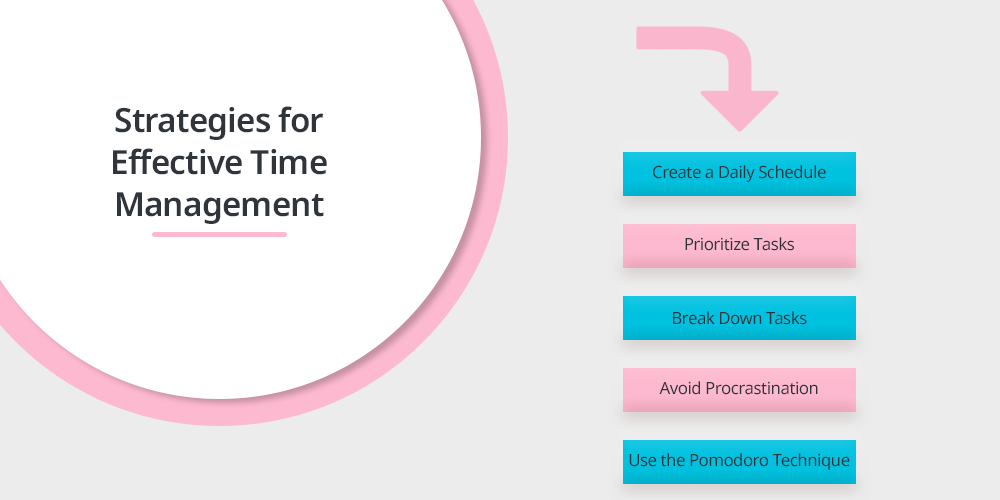
1. Create a Daily Schedule
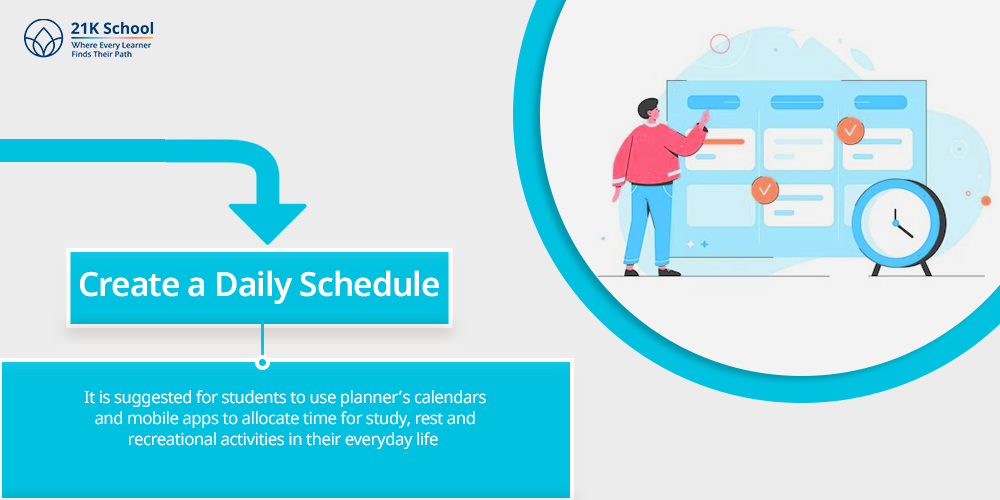
Students are advised to use planners, calendars, and mobile apps to allocate time for study, rest and recreational activities in their everyday life with the help of which they can plan their day very effectively.
They can even consider writing down the deadlines for assignments, tests and projects somewhere near the table and in the most accessible regions to stay up to date and always stick to the timeline for the task.
2. Prioritize Tasks
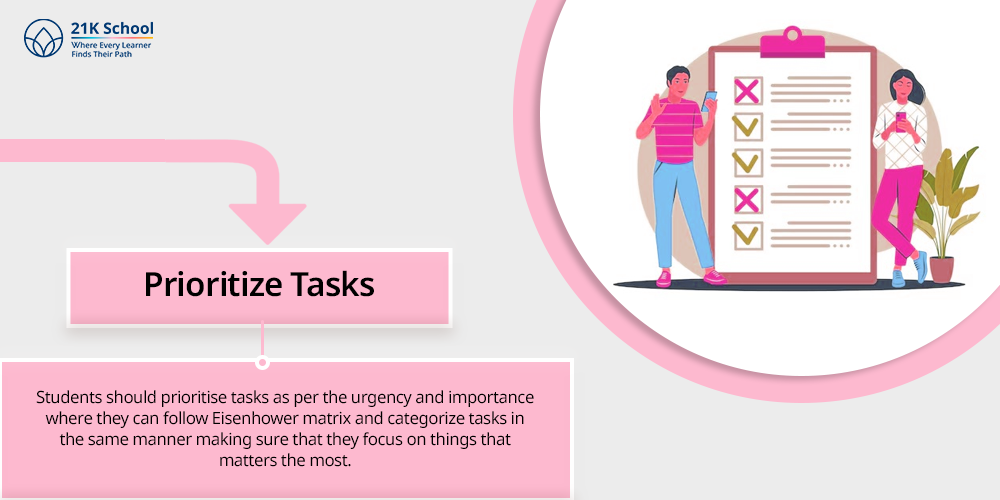
Students should prioritise tasks as per the urgency and importance where they can follow Eisenhower matrix and categorize tasks in the same manner making sure that they focus on things that matters the most.
3. Break Down Tasks
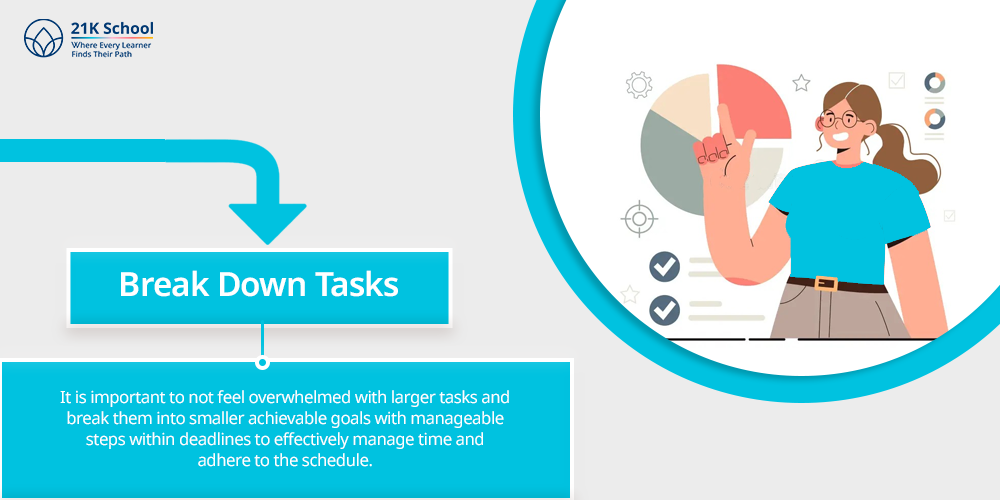
It is important to not feel overwhelmed with larger tasks and break them into smaller achievable goals with manageable steps within deadlines to effectively manage time and adhere to the schedule.
4. Avoid Procrastination
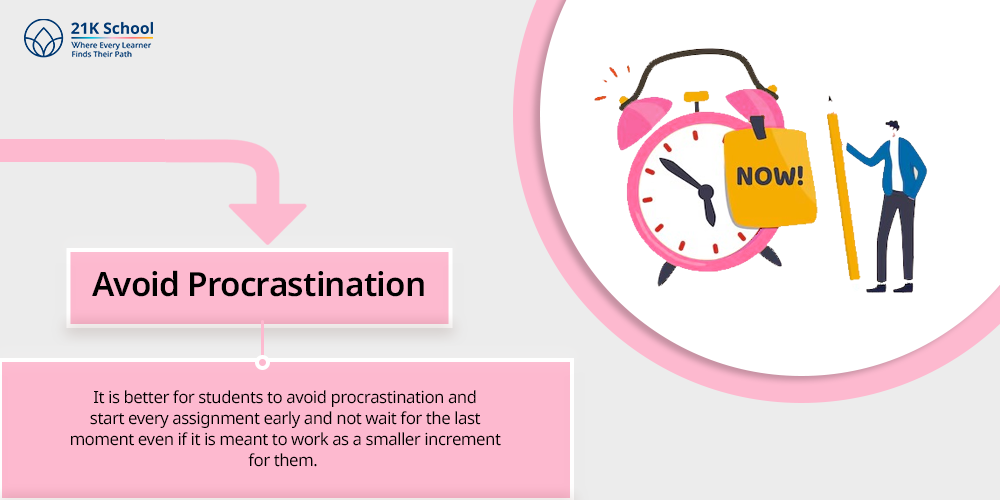
It is better for students to avoid procrastination and start every assignment early and not wait for the last moment even if it is meant to work as a smaller increment for them.
It is suggested to use techniques like 5 minute rules to push themselves and to start tasks as immediately as possible to be well within time.
5. Use the Pomodoro Technique
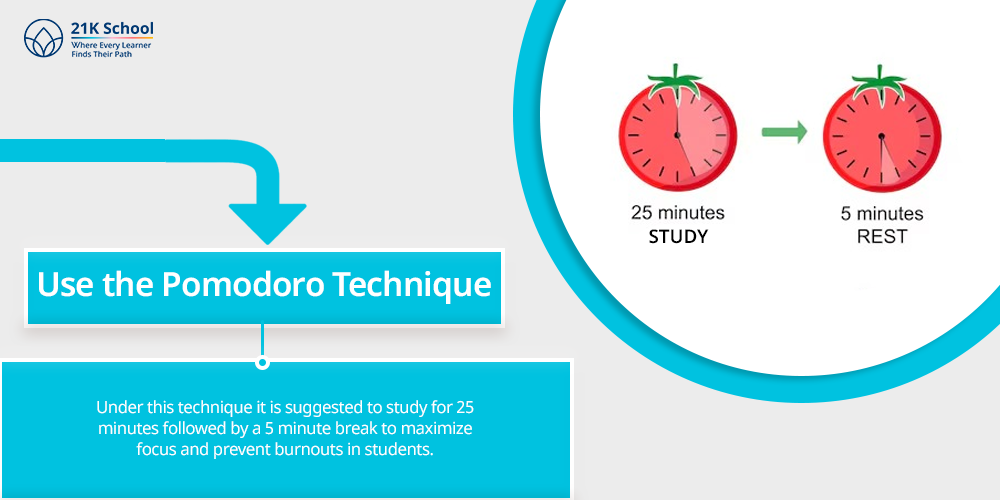
There is a specific technique designed to utilise time in the best possible way known as pomodoro technique.
Under this technique the students should study for 25 minutes followed by a 5 minute break to maximize focus and prevent burnouts in students.
Students who manage their time well and effectively not only succeed in their academic life with tasks and assignments. Rather they also find time for other essential activities like exercise, sleep and hobbies.
Time management helps in shaping lifestyle for students, reducing stress and providing them a sense of control over their everyday routine.
2. Effective Study Techniques
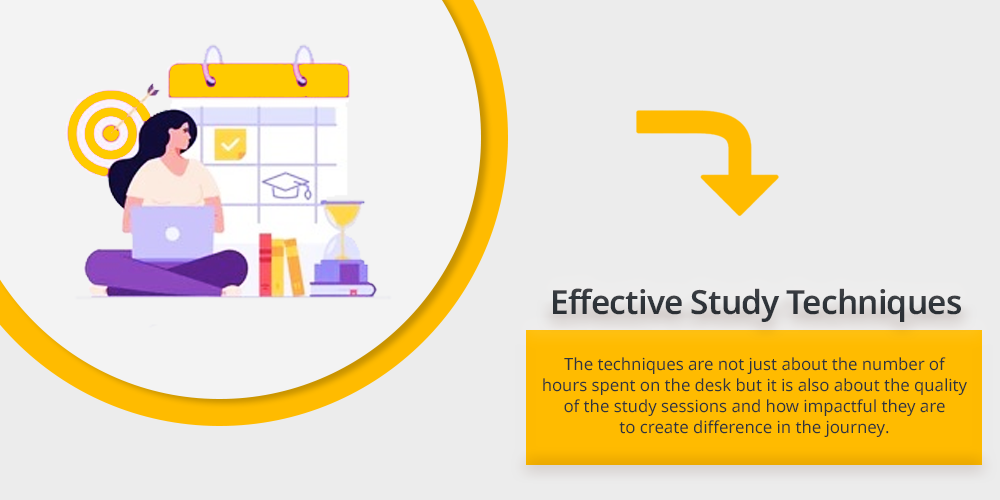
In order to study there are some techniques that are implemented in a student’s academic journey that enhances the overall academic performance of a student and makes studying more efficient.
The techniques are not just about the number of hours spent on the desk but it is also about the quality of the study sessions and how impactful they are to create difference in the journey.
Key Study Techniques:
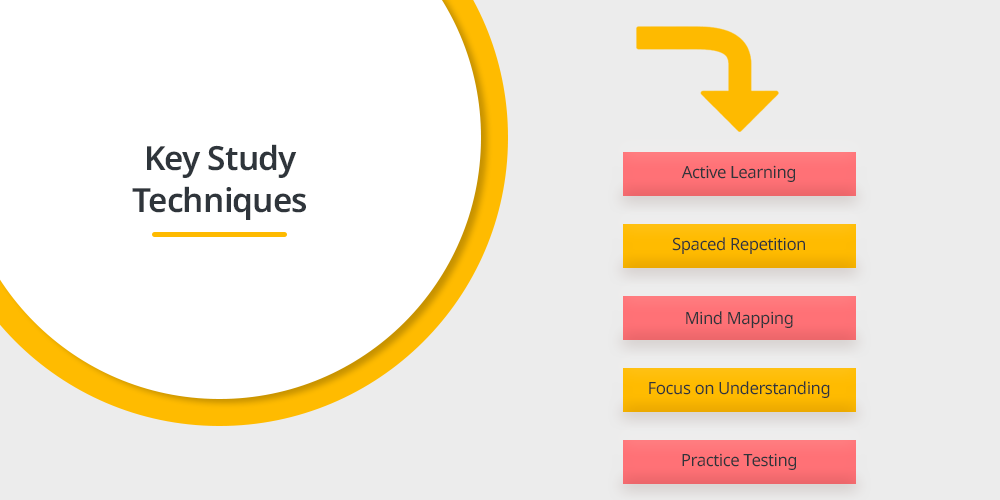
1. Active Learning
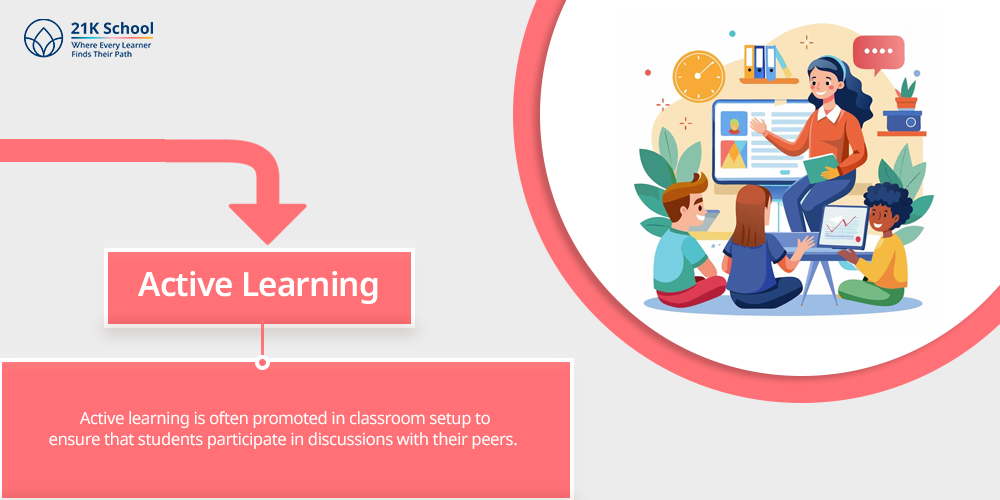
Engaging with the material is very important as summarising the content taught and asking questions will make a difference in the learning journey where active learning is often promoted in classroom setup to ensure that students participate in discussions with their peers.
In order to retain the information for a long time it is suggested to teach someone else what you have learnt — it is one of the best practices.
2. Spaced Repetition
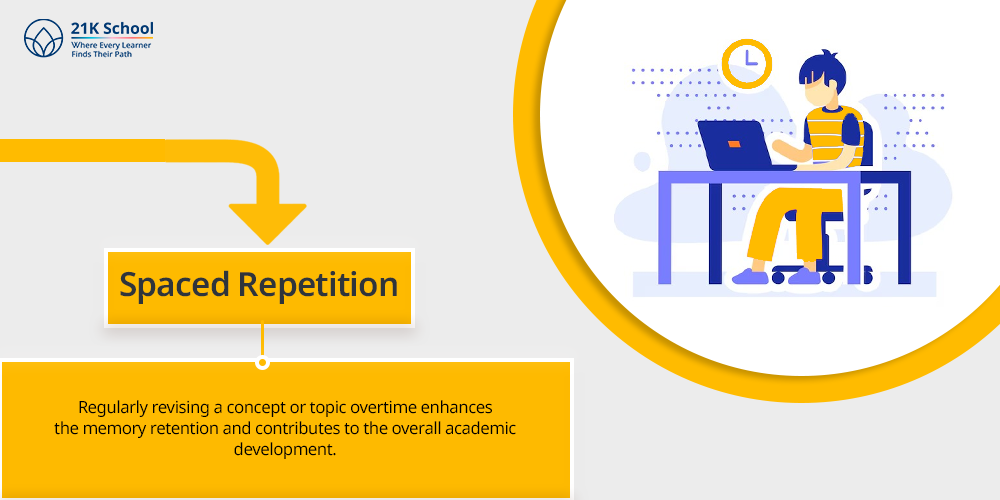
For students to imply effective study techniques they need to look for space repetition of information rather than cramming.
Regularly revising a concept or topic overtime enhances the memory retention and contributes to the overall academic development.
3. Mind Mapping
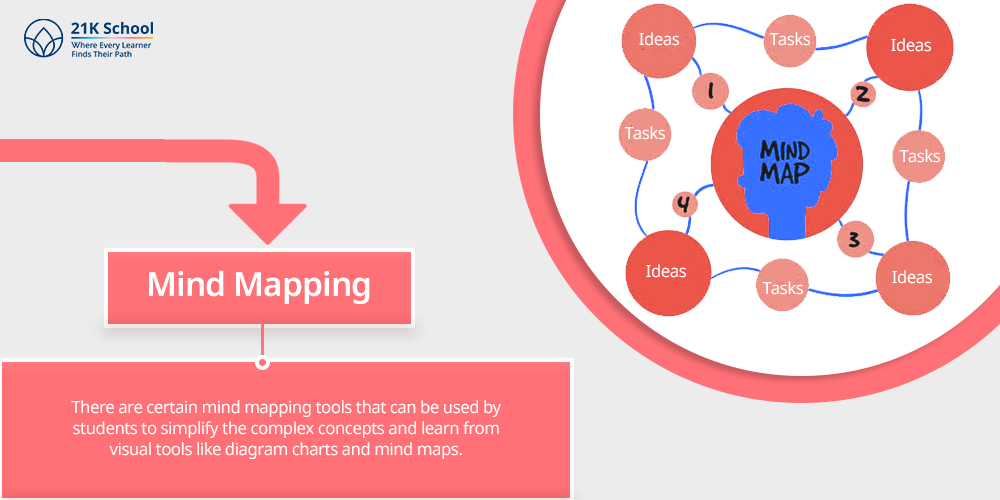
There are certain mind mapping tools that can be used by students to simplify the complex concepts and learn from visual tools like diagram charts and mind maps.
4. Focus on Understanding
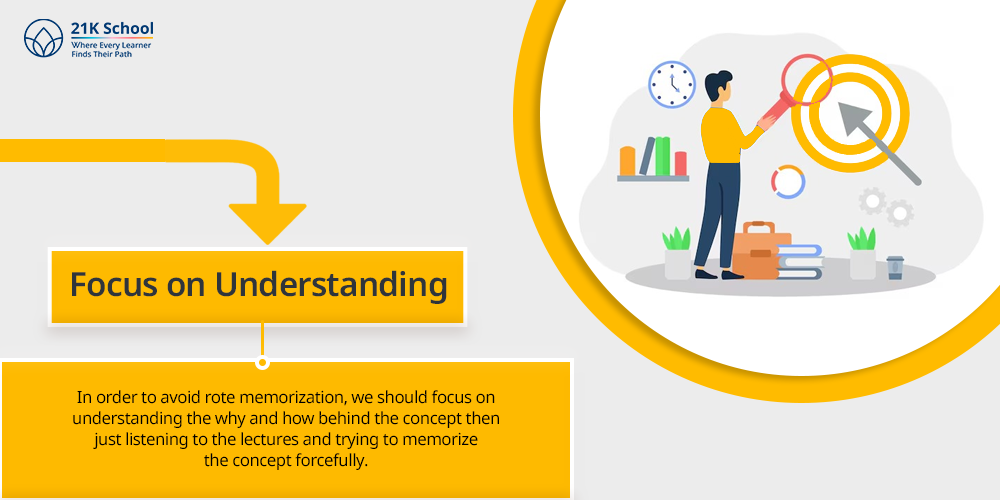
In order to avoid rote memorization, we should focus on understanding the why and how behind the concept then just listening to the lectures and trying to memorize the concept forcefully.
5. Practice Testing
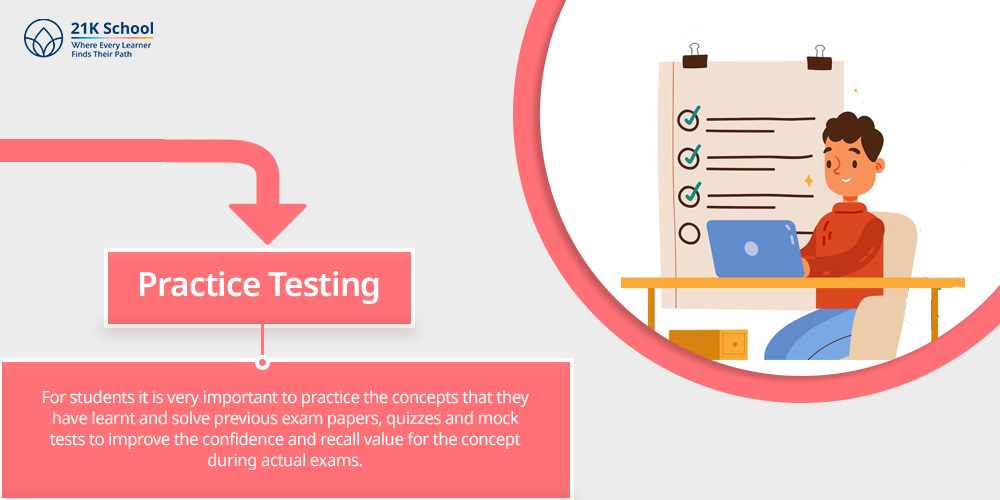
For students it is very important to practice the concepts that they have learnt and solve previous exam papers, quizzes and mock tests to improve the confidence and recall value for the concept during actual exams.
It is well said by a person that practice makes man perfect.
Additionally it is also important to create a dedicated distraction free study environment for students which will ultimately help in improving focus.
Also experiment with different learning styles to discover what works best for them, samay the most common learning styles to choose from could be visual, auditory and kinesthetic.
3. Staying Organized
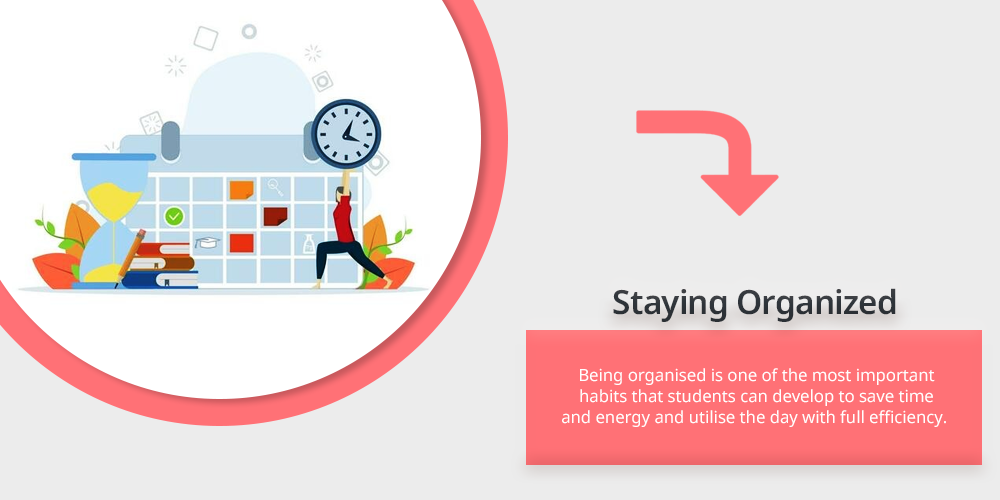
Being organised is one of the most important habits that students can develop to save time and energy and utilise the day with full efficiency.
Organized students can work more efficiently than the unorganized one and avoid unnecessary stress caused by lost assignments, missed deadlines and cluttered workspace.
There are certain things that a student can do in order to stay organized which includes using a planner or digital tools: there are multiple tools available like Google calendar relog and notion which can help students in tracking the assignment, preparing for exams and marking of daily tasks.
Students can take an extra step to organize notes and resources by categorizing them by subjects and dates, they can use digital tools like Evernote and one note which are considered one of the most efficient organizing tools currently available.
4. Healthy Lifestyle

A healthy body supports a sharp and focused mind.
Key Elements of a Healthy Lifestyle:
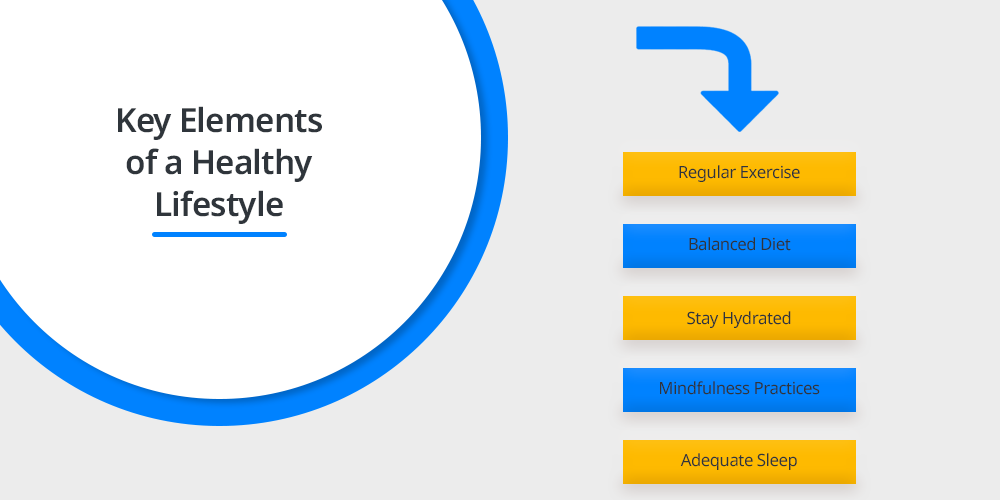
1. Regular Exercise

Physical activity is very important for students to be involved in physical activities and regularize exercise in their life with activities like walking, cycling, yoga or team sport which involves blood circulation and brain functions to boost mood and keep them more efficient and energetic.
2. Balanced Diet
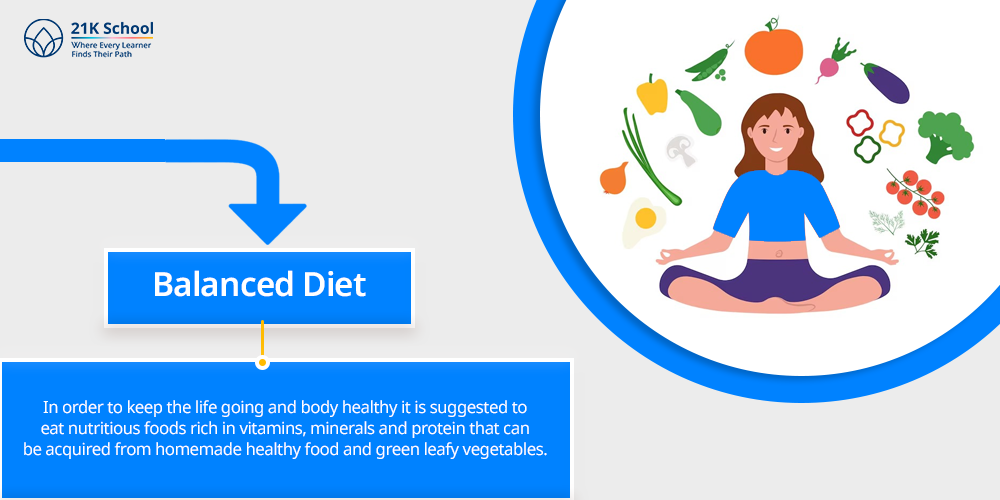
In order to keep the life going and body healthy students should eat nutritious foods rich in vitamins, minerals and protein that can be acquired from homemade healthy food and green leafy vegetables.
It is also suggested to avoid junk food and sugary drinks which can reduce the energy level in students. One of the most dangerous drinks for young students is a carbonated beverage available in the market.
3. Stay Hydrated
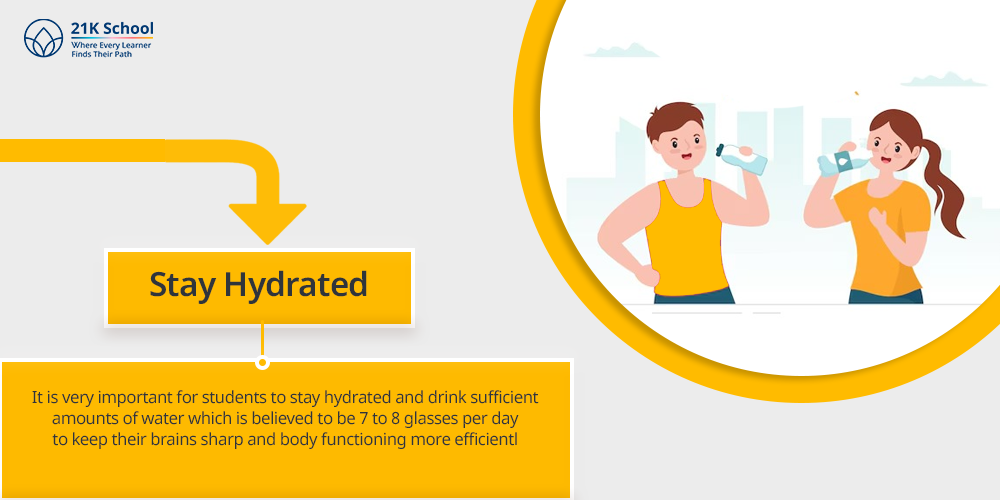
It is very important for students to stay hydrated and drink sufficient amounts of water which is believed to be 7 to 8 glasses per day to keep their brains sharp and body functioning more efficiently this also helps them in being physically fit which is a building block of most of the things that happens in a students life.
4. Mindfulness Practices
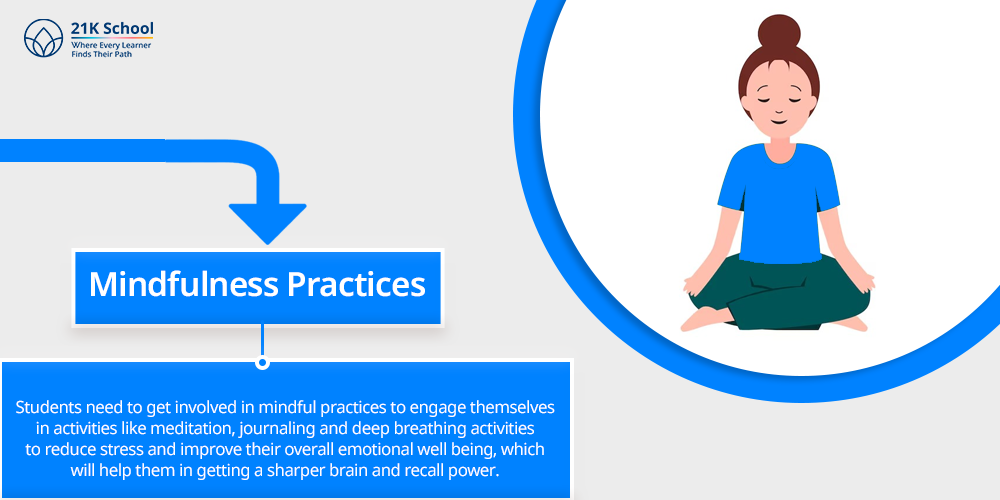
Students need to get involved in mindful practices to engage themselves in activities like meditation, journaling and deep breathing activities to reduce stress and improve their overall emotional well being, which will help them in getting a sharper brain and recall power.
5. Adequate Sleep
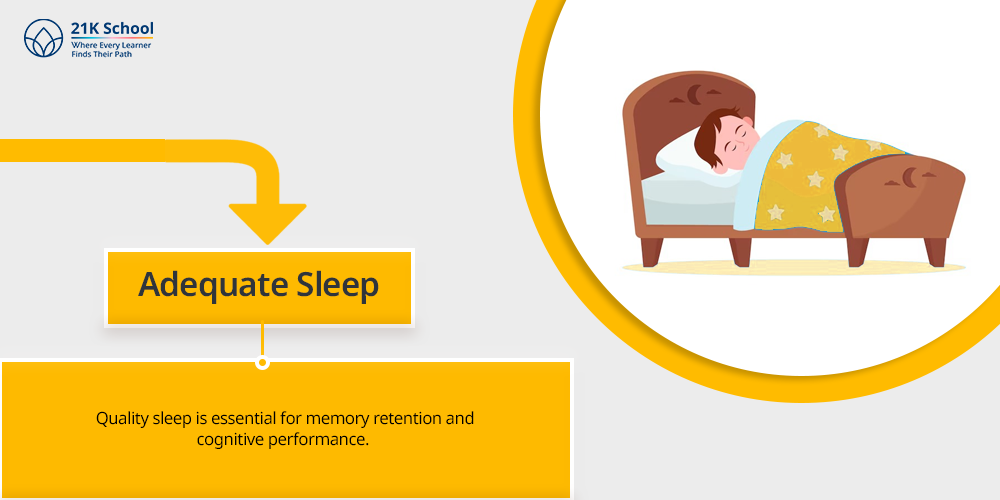
Quality sleep is essential for memory retention and cognitive performance.
Read on to learn more about, How Many Hours of Sleep is Enough for a Student ?
5. Consistent Reading Habits
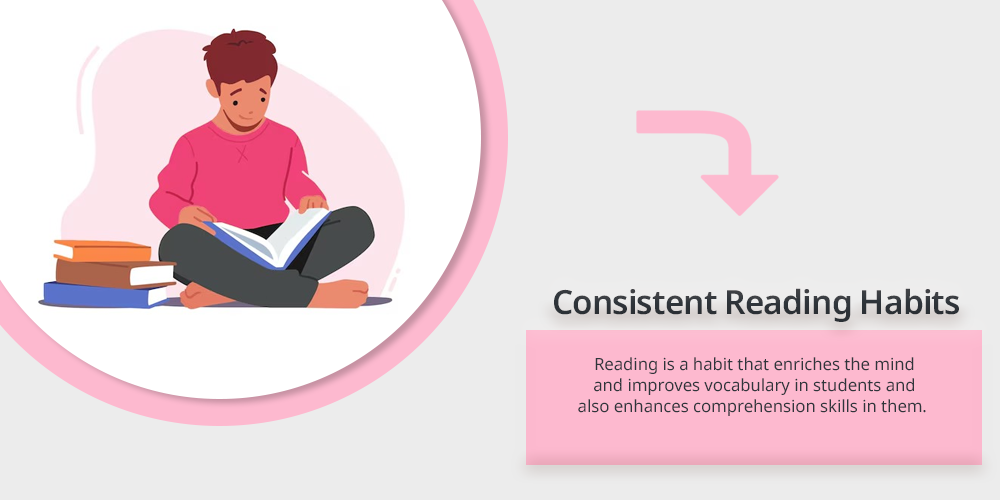
Reading is a habit that enriches the mind and improves vocabulary in students and also enhances comprehension skills in them.
Students who develop the habit of consistent reading are better learners, thinkers and communication where it is believed that reading improves focus and contributes to critical thinking skills in students making them more creative.
The students should build a reading habit and take smaller steps and dedicate at least 15 to 30 minutes each day for reading and explore for varied content.
Do not restrict themselves from reading just text books, rather they can also extend and read for newspapers, novels, blogs and articles as per the topics of their interest.
For students it is okay to set goals and challenge themselves to attain a certain number of books in a month or in a year to maintain consistency and have healthy competitiveness in themselves.
There are many more benefits to reading : to know more read the blog mentioned Benefits of Reading for Students
For students it is also a thing that in their co-curricular activities time they can join reading clubs which encourages accountability and fosters discussion in them where they can make reading fun as they interact with their peers and choose genres and authors that they personally enjoy and can suggest the same to others.
6. Rest and Sleep Routine
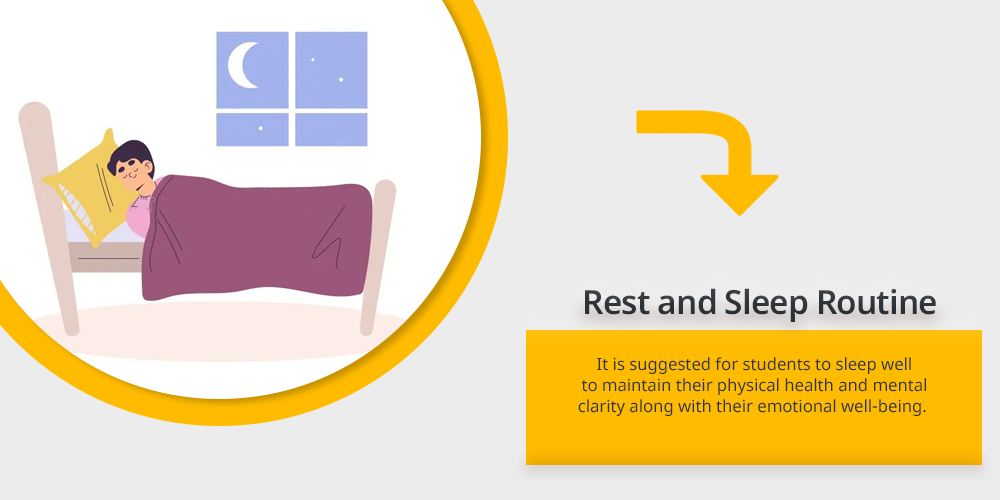
A well rested mind is a productive mind.
It is suggested for students to sleep well to maintain their physical health and mental clarity along with their emotional well-being.
Students often underestimate the importance of sleep due to demanding schedules in assignments and as they get busy with exam preparations restart neglecting sleep and their everyday sleep cycle gets disrupted.
However a lack of proper rest can lead to a lot of diseases and problems like fatigue, irritability and difficulty in concentrating resulting in poor academic performances.
So why is sleep so important for students ?
Sleep enhances memory and learning power as during sleep the brain consolidates information learned throughout the day and improves the memory retention power of students helping them recall the things that they have learned.
Sleep also helps students in boosting focus and concentration as it improves mental clarity enabling them to perform better in exams and study well there are certain healthy sleep routines that they should follow tips to which are :
Tips for a Healthy Sleep Routine :
- Follow a Consistent Sleep Schedule
- Avoid Late-Night Cramming
- Limit Screen Time Before Bed
- Create a Relaxing Bedtime Routine
- Keep a Comfortable Sleep Environment
Sleep has a very critical role in building the immune system and the impact it creates on the body supports physical health to regulate hormones and help our body in recovering from daily activity and stress.
By creating a relaxing bedtime routine students can improve their mental health and eliminate the issues of irritability, anxiety and mood swings.
It is very important to sleep in a comfortable environment to feel well rusted and be more emotionally stable as students with comfortable sleep schedules have a balanced lifestyle as compared to those who do not prioritize their sleep.
So how much do we need to sleep?
As students and children from the age group of 6 to 18 they require 8 to 10 hours of sleep every night.
And young adults and college students should aim for at least 7 to 9 hours of sleep.
Conclusion
A good habit is like a tree where, as you cultivate it leads you to success and makes life fruitful.
Cultivating a good habit is a key to achieving success in life in terms of academic personal development or even in professional life — it’s a wholesome experience.
For students it is very important to adapt some of the healthiest habits like time management, effective study technique, staying organised and maintaining a healthy lifestyle to create a foundation for success which will contribute to their life in teaching them valuable life skills like discipline, focus and resilience.
Good habits help students in their journey by creating a focused environment which makes them well suited individuals for the future where they are more accountable and responsible to the environment around them.
Habits are more to do with developing a positive attitude towards life where good habits like consistent reading and structured sleep routine help students in maintaining their health in all respects whether it be physical, emotional or mental which makes them future ready.
Habits are not something that can be formed overnight in order to develop a healthy habit for a lifetime. It requires patience, consistency and willingness to be better at life and not comparatively better than anyone.
Students who incorporate habits early in their life find themselves in a situation where they are more responsible and grow into more confident and successful individuals who take up all the opportunities efficiently and positively.
One should never forget that success is not about working hard rather it is about working smart and working more efficiently. This efficiency comes from the wealth and health which is mentally suited and helps students in maintaining a balanced lifestyle.
